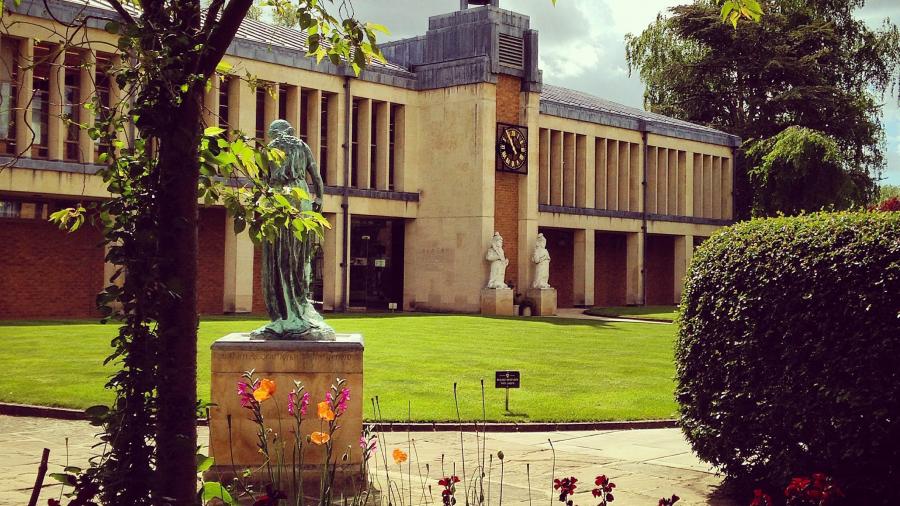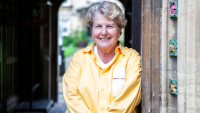
The COVID-19 pandemic has heightened awareness of the significant flaws in our urban infrastructure. It has highlighted our lack of attention to how human health, natural systems, and the built environment interact to determine planetary health. These flaws are global, intensified in regions that are rapidly urbanising with increased risk of ecological disruption and where a growing number of people are living in unsafe human settlements that increase risk of infectious and non-communicable diseases. The pace of growth in these cities presents an opportunity to re-think creation of health as a central strategy for sustainable urban development. To that end, this webinar will largely focus on experiences and lessons from Africa, the fastest urbanising region globally.
A positive societal reset is required with the purpose of cities re-centred towards sustainable human and planetary health. The WHO recently published a manifesto for healthy recovery from COVID-19 with 5 steps: 2 of which included building healthy cities and promoting healthy sustainable food systems. But how will this work in practice?
The greatest threat to positive societal reset is not the challenges of the present but a stagnant mindset of impossibility. The world has witnessed unprecedented collaboration as part of the pandemic response, between different government ministries, between community groups and the public sector, and between public and private sectors responses. These previously considered improbable or unlikely intersectoral action for health challenge our perceived limits of what is possible. Our challenge is thus to harness this momentum to accelerate societal re-imagination of a different future, and to catalyse action to address health, social and planetary inequalities.
We will be in conversation with global partners whose work impact the built environment, population health and sustainability. We will touch on global, regional and local approaches to integrating health into urban planning and development, share experiences from different cities of intersectoral action before and during the pandemic, and hear examples of ongoing and planned urban built environment interventions. We will also be asking how healthy sustainable urban development can be financed and exploring the role of transdisciplinary research in generating evidence to inform and support effective interventions to create healthy sustainable equitable cities. Discussions will feed into ongoing efforts to integrate health foresight into Africa’s cities for human and planetary health.
- Click here to expand an abbreviated programme.
-
15.00-15.40 Urban and Planetary Health: Setting the Scene Jane Clarke, President of Wolfson College
Steve Evans, Fellow of Wolfson College, Centre for Industrial Sustainability, University of Cambridge
Tolullah Oni, Fellow of Wolfson College, MRC Epidemiology Unit, University of Cambridge
Thiago de Sa, Technical Officer; Department of Environment, Climate Change and Health; WHO
Pamela Carbajal, Urban health and regional planner consultant, UN Habitat
Discussant: Hastings Chikoko, Director c40 Africa
15.40-16.15 Role of Intersectoral Action before and During Pandemic Response Amy Weimann, PhD candidate, Research Initiative for Cities Health and Equity, University of Cape Town
Noxolo Kabane, former Deputy Director, Western Cape Govt Dept of Human Settlements, South Africa
Dalene Kenfack, Dept of Urban Planning, Douala City Council, Cameroon
Desmond Appiah, C40 City Adviser, Accra & Chief Resilience & Sustainability Advisor to Mayor of Accra
Discussant: Remy Sietchiping, Chief Policy, Legislation and Governance section, UN Habitat
16.15-17.30 Planetary Health Foresight Beyond the Pandemic:
Policy-relevant Action
Financing Health Sustainable Urban Development
Folayinka Dania, Deputy Resilience Officer, Lagos State Resilience Office
Jeremy Potter, Chelmsford City Council and Chair of the Essex Planning Officers Society
Discussant: Chris Kost, Director (Africa), Institute for Transport and Development Policy
Discussant: Sharath Srinivasan, founding Director, Africa Voices Foundation & Dept of Politics and International Studies, University of Cambridge
Kevin Urama, Senior Director, African Development Institute, African Development Bank
Eliane Ubalijoro, Professor of Practice for Public and Private Sector Partnerships, McGill University’s Institute for the Study of International Development
Discussant: Gillian Marcelle, blended finance specialist Resilience Capital Ventures LLC
Please register here.
Event times:
15.00-17.30 BST & WAT
16.00-18.30 CET & SAST
17.00-19.30 EAT
10.00-12.30 EST

French Version
La pandémie du Covid-19 nous a fait prendre conscience des lacunes importantes qui existent dans notre infrastructure urbaine. Elle a souligné notre manque d’attention sur la manière dont la santé humaine, les systèmes naturels et l’environnement bâti interagissent, ce avec des répercutions sur la santé planétaire. Ces lacunes sont de nature globale, accentuées dans les régions en proie à une urbanisation accélérée avec un risque accru de perturbations écologiques et où un nombre croissant de personnes vivent dans des établissements insalubres augmentant le risque des maladies infectieuses et non-transmissibles. Le rythme de croissance de ces villes représente néanmoins une opportunité de promouvoir la santé comme une stratégie centrale de développement urbain durable. À cette fin, ce webinaire se concentrera largement sur les expériences et les leçons tirées de l'Afrique, la région où l'urbanisation est la plus rapide au monde.
Une réinitialisation positive de la société s’impose pour permettre aux villes de se recentrer sur la santé humaine et planétaire durable. L’OMS a récemment publié à cet effet un manifeste pour un monde en meilleure santé après le Covid-19 avec 5 recommandations, dont deux portent sur la construction de villes saines et vivables et la promotion de systèmes alimentaires sains et durables. Cependant, comment fonctionneront-elles en pratique?
La plus grande menace pesant sur la réinitialisation positive de la société ne réside pas dans les défis du présent, mais dans un état d’esprit inerte où les choses semblent impossibles. En réponse à la pandémie, le monde a été le témoin d’une collaboration sans précédent entre différents gouvernements, entre des groupes communautaires et le secteur public et entre les acteurs privés et publics. Considérées comme improbables auparavant, ces coopérations intersectorielles pour relever un défi sanitaire ont modifié notre perception de ce qui est possible. Ainsi, notre challenge est de tirer profit de cet élan afin de ré-imaginer nos sociétés avec un futur différent et concentrer nos efforts pour remédier aux inégalités sociales, planétaires et en matière de santé. .
Nous engagerons des débats avec des partenaires globaux dont les travaux impactent l’environnement bâti, la santé publique et la durabilité. Nous examinerons les approches globales, régionales et locales pour intégrer la santé dans le développement et l’aménagement urbain, partagerons les expériences de différentes villes et entendrons des exemples d’interventions planifiées voire en cours liées à l’environnement bâti. Nous nous pencherons aussi sur la manière dont un développement urbain durable et sain peut être financé et nous explorerons le rôle de la recherche interdisciplinaire dans la production de preuves permettant d’informer et de soutenir des mesures efficaces, ce avec pour objectif d’ériger des villes saines, durables et équitables. Ces discussions viendront enrichir les efforts en cours pour intégrer les prévisions relatives à la santé dans les villes africaines en vue d’améliorer la santé humaine et planétaire.
